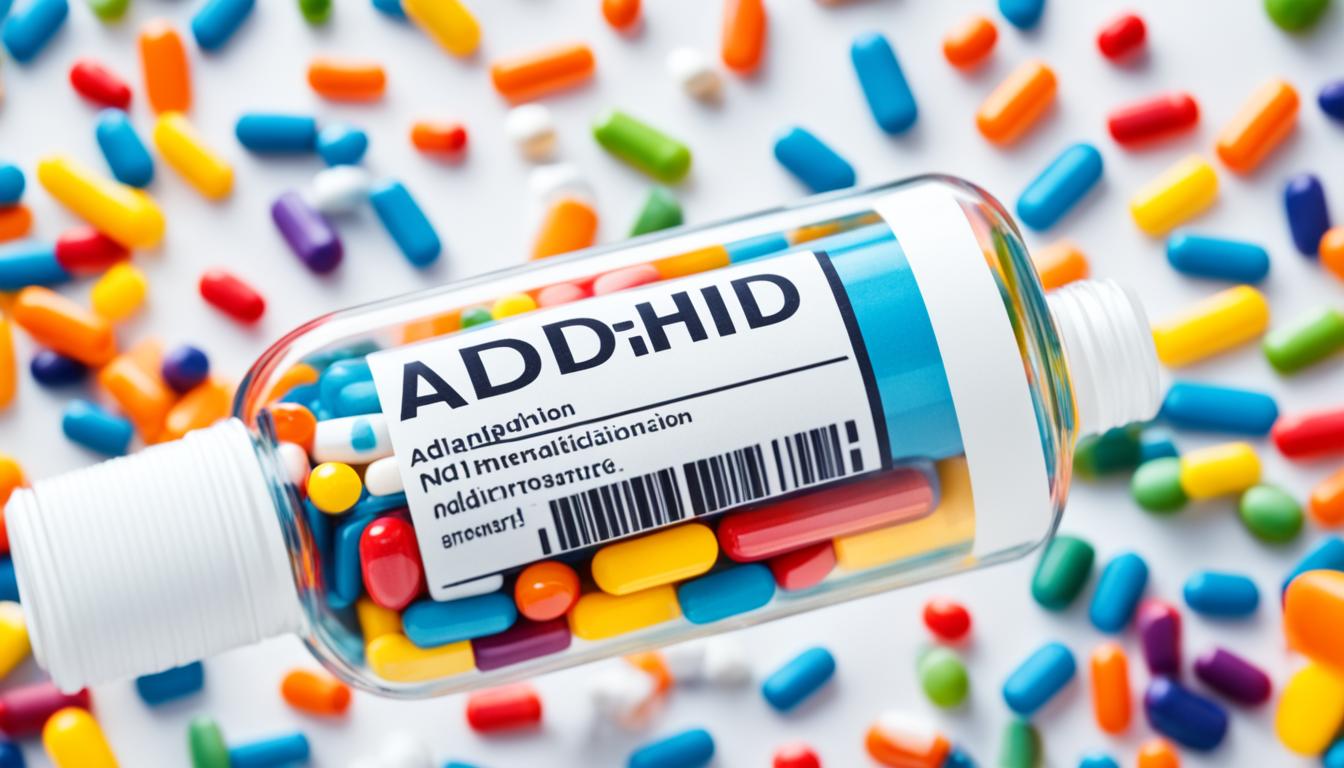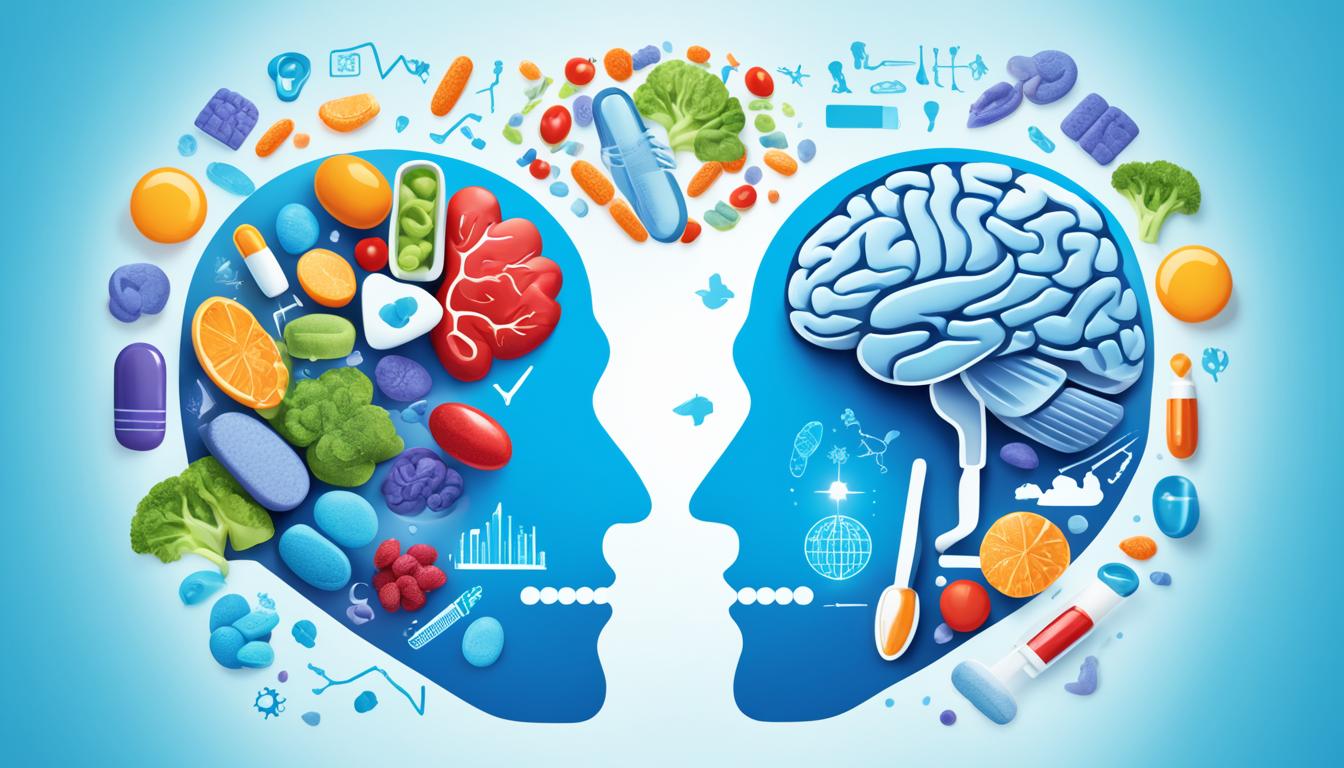According to a recent study,
ADHD medications have been found to significantly decrease the risk of early mortality.
This finding has far-reaching implications for individuals with ADHD and their overall health outcomes. The study highlights the importance of medication as an essential component of ADHD management, underscoring its role in reducing the risk of premature death. Let’s delve deeper into the impact of ADHD medications on lifespan and explore the potential factors that contribute to the increased risk in individuals with ADHD.
Key Takeaways
- ADHD medications have been shown to significantly reduce the risk of early death.
- Proper medication treatment plays a crucial role in improving the lifespan and overall health of individuals with ADHD.
- Medication adherence and proper dosage management are important for optimal health outcomes.
- ADHD management should include medication as a crucial element.
- Future directions in ADHD research and treatments aim to improve medications and therapies.
Exploring the Impact of ADHD Medications on Lifespan
In this section, we will delve deeper into the impact of ADHD medications on lifespan. Research suggests that individuals with ADHD are at a higher risk of early mortality compared to the general population. ADHD is associated with various factors that contribute to this increased risk, such as impulsivity, poor decision-making, and difficulty in managing overall health.
However, ADHD treatment, including the use of medications, can significantly improve outcomes and reduce the risk of early death. Medications for ADHD, such as stimulants and non-stimulants, play a crucial role in managing symptoms and promoting overall well-being.
| Treatment | Safety Profile | Efficacy in Prevention of Early Death |
|---|---|---|
| Stimulant Medications | Generally well-tolerated with minimal side effects | Significantly reduce the risk of early death |
| Non-Stimulant Medications | Generally safe with minimal side effects | Effective in reducing the risk of premature mortality |
These medications work by improving attention, impulse control, and executive functioning, ultimately leading to better decision-making and healthier lifestyle choices. By effectively managing ADHD symptoms, individuals are empowered to take control of their health and reduce the risk of early death.
It is important to note that medication safety is a priority in ADHD treatment. Healthcare professionals closely monitor the use of medications, ensuring proper dosing and addressing any potential side effects. The overall safety profile of ADHD medications has been well-established, providing individuals with a safe and effective treatment option.
In conclusion, ADHD medications have a significant impact on lifespan by reducing the risk of early mortality. Through proper management of ADHD symptoms, individuals can improve their overall health and well-being, preventing premature death. Medication plays a crucial role in the prevention of early death among individuals with ADHD, providing a safe and effective treatment option.
ADHD Medications Cut Risks for Early Death, Especially by Overdose: Study
This section focuses on the specific risk reduction provided by ADHD medications in terms of early death, particularly in cases of overdose. A recent study has found that individuals with ADHD who receive proper medication treatment have significantly lower risks of early mortality, especially related to drug overdoses. The study highlights the importance of medication adherence and proper dosage management to ensure optimal health outcomes for individuals with ADHD.

Research has shown that ADHD medications play a crucial role in reducing the risks associated with early death. Individuals with ADHD often face a higher risk of premature mortality due to a variety of factors, including impulsivity, comorbidities, and lifestyle choices. However, the study brings to light the positive impact of medication treatment in mitigating these risks.
By effectively managing the symptoms of ADHD, medications help individuals make better decisions and engage in healthier behaviors, ultimately reducing the likelihood of engaging in risky activities that can lead to early death. Additionally, ADHD medications improve impulse control, which is particularly important in preventing drug overdoses, as impulsive decision-making can often result in dangerous drug interactions or excessive dosages.
ADHD medications have been instrumental in reducing the risks of early mortality for individuals with ADHD. Proper medication adherence and dosage management can significantly improve health outcomes and reduce the likelihood of overdose-related deaths. It is essential for healthcare providers and individuals with ADHD to prioritize medication treatment as a vital component of managing the condition.
It is crucial for individuals with ADHD to consistently take their prescribed medications as directed by their healthcare providers, following the recommended dosage and monitoring any potential side effects. Regular communication and collaboration between patients, caregivers, and healthcare professionals are essential in ensuring the safe and effective use of ADHD medications.
| Key Findings | Medication Adherence | Proper Dosage Management | Overdose Risk Reduction |
|---|---|---|---|
| ADHD medications reduce the risk of early death in individuals with ADHD. | Consistent medication adherence is crucial for optimal health outcomes. | Proper dosage management helps prevent medication-related complications. | Medications significantly lower the risk of overdose-related deaths. |
| Medications improve impulse control and reduce impulsive decision-making. | Patient-provider collaboration is essential for effective medication use. | Regular monitoring and communication help identify and address any side effects. | Enhanced health education can promote medication safety and awareness. |
The findings of this study emphasize the importance of ADHD medication in reducing the risks associated with early death. By ensuring medication adherence and proper dosage management, healthcare professionals can help individuals with ADHD lead longer, healthier lives.
Conclusion
In conclusion, this article has highlighted the crucial role that medication plays in managing ADHD and reducing the risk of early death. The findings of the study discussed in this article provide strong evidence for the importance of medication as a crucial element in ADHD management. Individuals with ADHD who receive proper medication treatment experience significant improvements in their overall health and lifespan.
Medication as a Crucial Element of ADHD Management
The use of medication in ADHD management has proven to be highly effective in reducing symptoms and improving functioning. This article has established that ADHD medications not only alleviate the core symptoms of the disorder but also contribute to better long-term outcomes for individuals with ADHD. By addressing the underlying neurochemical imbalances associated with ADHD, medications help individuals manage their symptoms and improve their quality of life.
Future Directions in ADHD Research and Treatments
The field of ADHD research and treatment is continuously evolving, with new advancements and therapies on the horizon. Future directions in ADHD research aim to explore novel treatment approaches that can further improve outcomes for individuals with the disorder. This includes the development of targeted medications with fewer side effects, as well as innovative non-pharmacological interventions. With ongoing research, we can expect to see more tailored treatments that address the specific needs of individuals with ADHD.
Implications for Mental Health Policy and Practice
The findings in this article have significant implications for mental health policy and practice. It is crucial for policymakers and practitioners to recognize the importance of access to appropriate ADHD treatment options. Ensuring that medication is made available and affordable for individuals with ADHD is key to maximizing their potential and reducing the risk of early mortality. By prioritizing ADHD management and promoting comprehensive care, we can improve the overall well-being of individuals with ADHD and enhance their chances of leading fulfilling lives.




